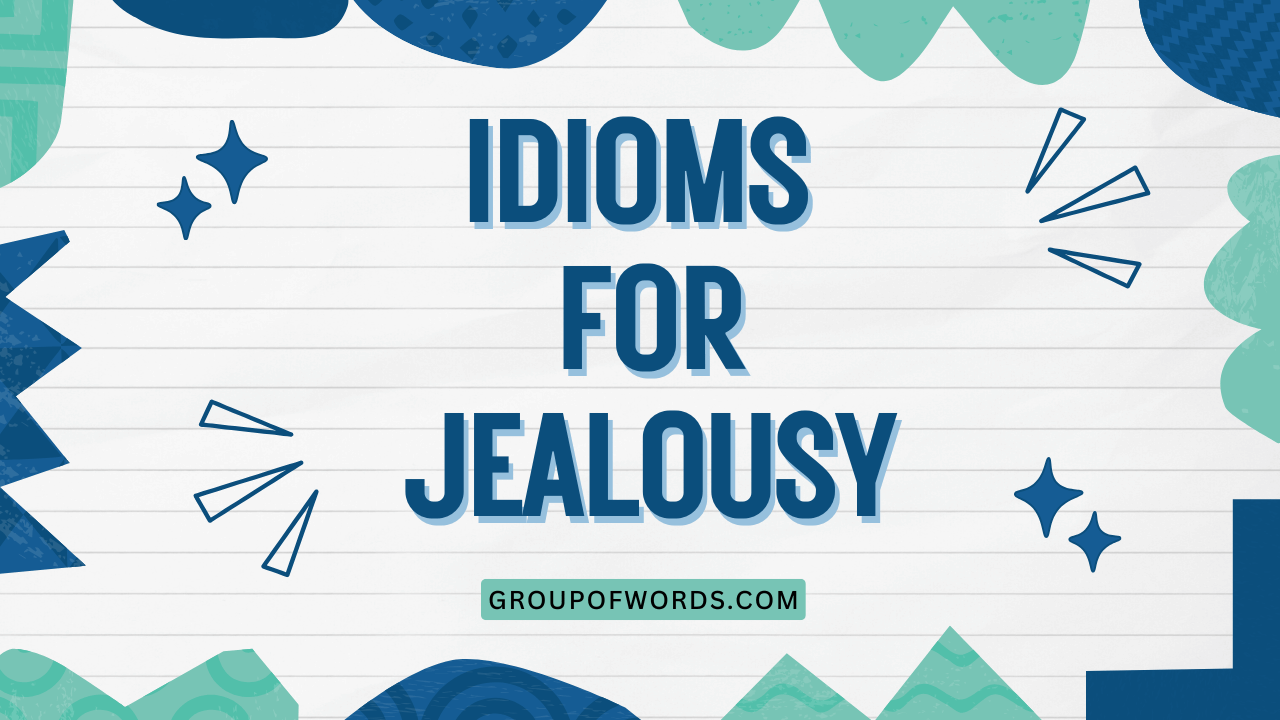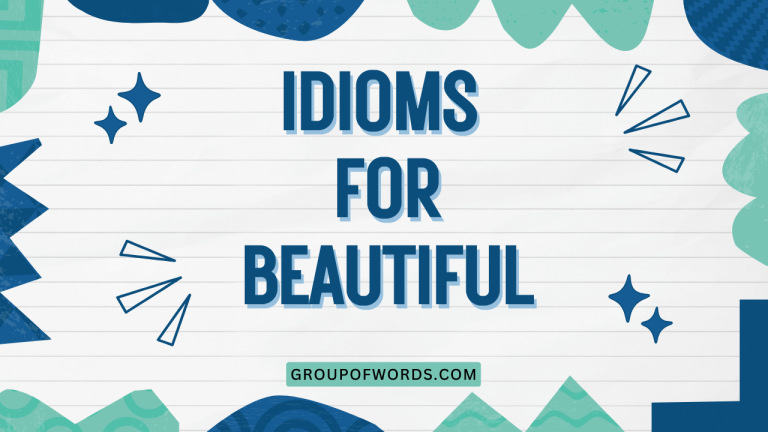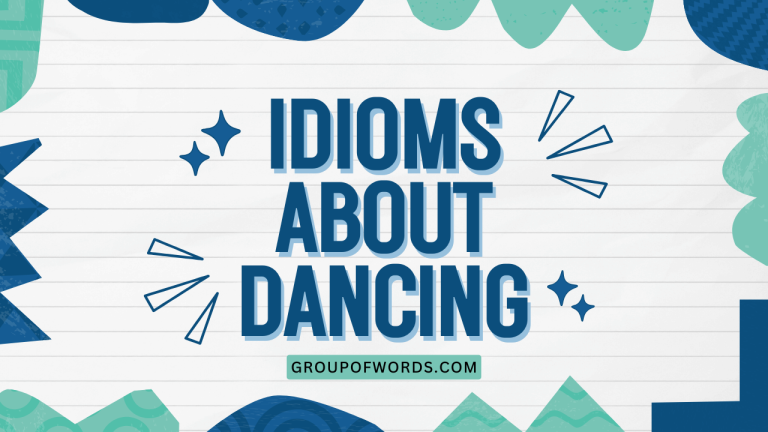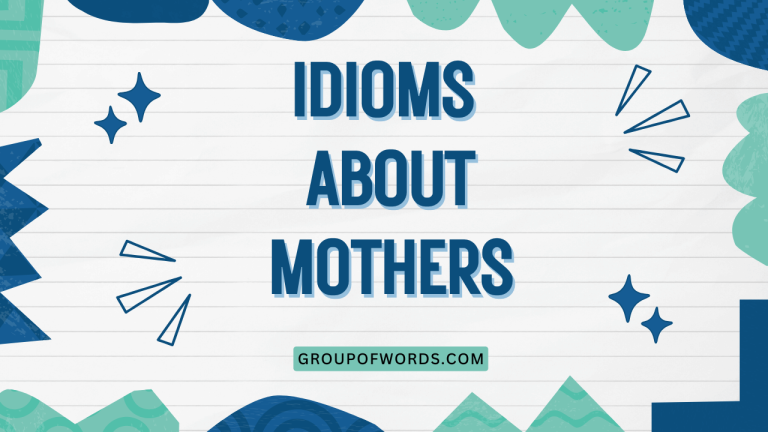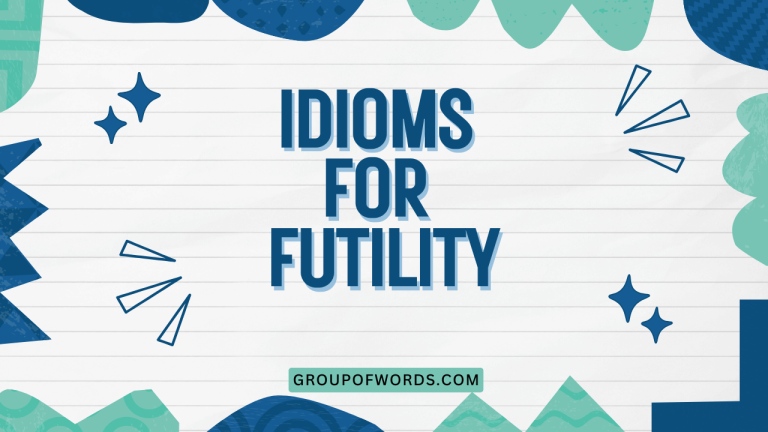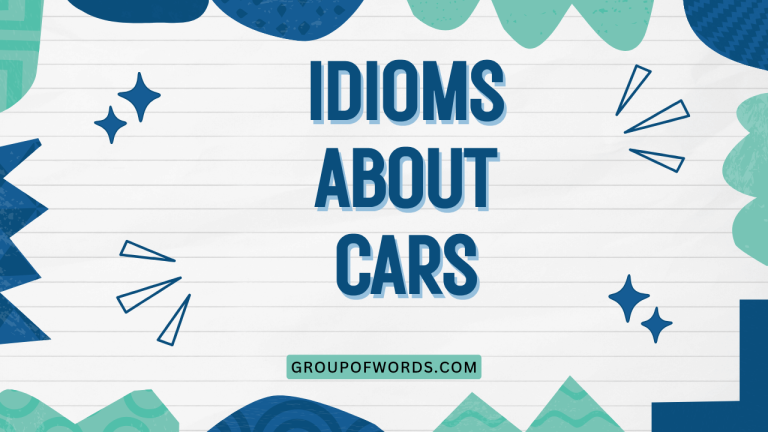Idioms for Jealousy: A Comprehensive Guide
Jealousy, a complex and often painful emotion, is a common theme in human experience. The English language is rich with idioms that capture the nuances of this feeling, offering colorful and evocative ways to express envy, resentment, and suspicion.
Understanding these idioms not only enhances your vocabulary but also provides insight into the cultural perceptions of jealousy. This article delves into the world of idioms for jealousy, providing definitions, examples, usage rules, and practice exercises to help you master this essential aspect of English expression.
Whether you’re an English language learner or a native speaker looking to expand your linguistic repertoire, this guide will equip you with the knowledge and skills to effectively communicate feelings of jealousy.
Table of Contents
- Introduction
- Definition of Idioms for Jealousy
- Structural Breakdown of Idioms
- Types or Categories of Jealousy Idioms
- Examples of Idioms for Jealousy
- Usage Rules for Jealousy Idioms
- Common Mistakes with Jealousy Idioms
- Practice Exercises
- Advanced Topics in Jealousy Idioms
- Frequently Asked Questions
- Conclusion
Definition of Idioms for Jealousy
An idiom is a phrase or expression whose meaning cannot be understood from the ordinary meanings of the words it contains. It’s a figurative expression that has a meaning different from the literal meaning of its individual elements.
Idioms for jealousy are specific phrases that convey feelings of envy, resentment, or suspicion towards someone else’s success, possessions, or relationships. These idioms often use metaphorical language to express the intensity and complexity of jealousy, adding color and depth to communication.
Jealousy idioms can be classified by the specific nuance of jealousy they express. Some idioms focus on envy of material possessions, while others highlight resentment towards someone’s romantic relationships or professional achievements.
Understanding these classifications helps in choosing the most appropriate idiom to convey the intended meaning.
The function of idioms for jealousy is to provide a more vivid and impactful way to express emotions that can be difficult to articulate directly. They allow speakers to convey complex feelings in a concise and culturally understood manner.
The context in which these idioms are used is crucial, as their meaning can be misinterpreted if used inappropriately.
Structural Breakdown of Idioms
Idioms, by their very nature, defy straightforward structural analysis. Their meaning is not derived from the individual words but from the phrase as a whole.
However, some common structural patterns can be observed in jealousy idioms.
Many jealousy idioms utilize metaphorical language, drawing comparisons between jealousy and other concepts. For example, “green-eyed monster” uses the metaphor of a monster to represent the consuming and destructive nature of jealousy.
The color green is associated with envy and sickness, further reinforcing the negative connotations. Other idioms might employ similes, analogies, or personification to express the emotion of jealousy.
Some idioms follow a subject-verb-object structure, while others are more descriptive phrases. The grammatical structure is less important than the overall meaning and the cultural context in which the idiom is used.
It’s crucial to understand the intended meaning of the idiom rather than trying to analyze it grammatically.
The key to understanding the structure of idioms lies in recognizing that they function as a single unit of meaning. Deconstructing the individual words often leads to a literal interpretation that misses the intended figurative meaning.
Learning idioms involves memorizing the phrases and their associated meanings rather than analyzing their grammatical structure.
Types or Categories of Jealousy Idioms
Jealousy idioms can be categorized based on the specific aspect of jealousy they emphasize. Here are a few categories:
Envy of Possessions or Success
These idioms focus on the resentment felt when someone else has something desirable, such as wealth, status, or talent.
Romantic Jealousy
These idioms express suspicion, possessiveness, or resentment towards someone’s romantic partner or potential rival.
Professional Jealousy
These idioms highlight the envy and resentment felt towards someone’s career achievements or professional recognition.
General Envy or Covetousness
These idioms express a more general feeling of wanting what someone else has, without necessarily focusing on a specific object or relationship.
Self-Deprecating Jealousy
These idioms express jealousy tinged with a sense of inadequacy or self-pity.
Examples of Idioms for Jealousy
Here are some examples of idioms for jealousy, categorized by their specific meaning:
The Green-Eyed Monster
This is perhaps the most well-known idiom for jealousy, originating from Shakespeare’s Othello. It refers to jealousy as a destructive and consuming force.
The following table provides examples of how to use “the green-eyed monster” in different contexts. The examples illustrate how the idiom can be used to describe feelings of envy, resentment, and suspicion.
| Example | Meaning |
|---|---|
| “Seeing his neighbor’s new car awakened the green-eyed monster within him.” | He felt envious of his neighbor’s new car. |
| “She tried to ignore the green-eyed monster when her friend got the promotion.” | She tried not to feel jealous of her friend’s success. |
| “The green-eyed monster can destroy relationships if left unchecked.” | Jealousy can damage relationships if not controlled. |
| “He battled the green-eyed monster as his girlfriend talked to another man.” | He struggled with jealousy as his girlfriend interacted with someone else. |
| “The actress succumbed to the green-eyed monster when her co-star received more praise.” | The actress became jealous of her co-star’s recognition. |
| “Don’t let the green-eyed monster ruin your happiness; be content with what you have.” | Avoid letting jealousy spoil your contentment; appreciate your own blessings. |
| “The green-eyed monster reared its head when she saw her ex with someone new.” | She felt a surge of jealousy upon seeing her former partner with another person. |
| “He knew the green-eyed monster was lurking, but he tried to focus on his own achievements.” | He was aware of his potential jealousy but attempted to concentrate on his personal successes. |
| “The constant comparisons fueled the green-eyed monster in their friendship.” | The ongoing comparisons intensified the jealousy within their friendship. |
| “She recognized the green-eyed monster and actively worked to overcome it.” | She acknowledged her jealousy and took steps to manage or eliminate it. |
| “The green-eyed monster whispered doubts in his ear, poisoning his trust.” | Jealousy instilled suspicion and undermined his faith in the relationship. |
| “She refused to let the green-eyed monster dictate her actions, choosing instead to celebrate her friend’s success.” | She intentionally avoided acting out of jealousy, opting to support and celebrate her friend’s accomplishments. |
| “The green-eyed monster often disguises itself as concern, masking true envy.” | Jealousy frequently presents itself as worry or care, hiding underlying envy. |
| “He couldn’t shake off the green-eyed monster that clung to him after his colleague’s promotion.” | He was unable to suppress the jealousy he felt following his colleague’s advancement. |
| “The green-eyed monster threatened to consume her as she watched her sister’s seemingly perfect life unfold.” | Jealousy threatened to overwhelm her as she observed her sister’s apparently flawless existence. |
| “The green-eyed monster is a powerful emotion that can lead to irrational behavior.” | Jealousy is an intense feeling that can cause illogical actions. |
| “Before the wedding, the bride-to-be had to fight off the green-eyed monster when comparing her plans to those of her friend.” | Leading up to her wedding, the future bride had to suppress her jealousy when comparing her wedding plans to her friend’s. |
| “The green-eyed monster can turn admiration into resentment in the blink of an eye.” | Jealousy can quickly transform feelings of admiration into feelings of resentment. |
| “He tried to reason with the green-eyed monster, reminding himself of his own accomplishments.” | He attempted to calm his jealousy by reminding himself of his own achievements. |
| “The green-eyed monster is often fueled by insecurity and a lack of self-worth.” | Jealousy is frequently intensified by feelings of insecurity and low self-esteem. |
Eat Your Heart Out
This idiom is used to express confidence and challenge others to match one’s achievement, often with a hint of boastfulness or sarcasm. It implies that others will be envious of what you have accomplished.
The table below provides examples of how to use “eat your heart out” in different contexts. The examples illustrate how the idiom can be used to express confidence, challenge, and a hint of boastfulness.
| Example | Meaning |
|---|---|
| “I finally finished writing my novel, eat your heart out, Hemingway!” | I’m proud of finishing my novel and challenging Hemingway’s legacy. |
| “Look at my new car, eat your heart out, everyone who said I couldn’t afford it!” | I’m showing off my new car to those who doubted my ability to buy it. |
| “She scored the winning goal, and shouted, ‘Eat your heart out!’ to the opposing team.” | She’s gloating about scoring the winning goal and taunting the opposing team. |
| “With my cooking skills, eat your heart out, Gordon Ramsay!” | I’m confident in my cooking abilities and challenging Gordon Ramsay’s reputation. |
| “He showed off his artwork and said, ‘Eat your heart out, Picasso!'” | He’s proudly displaying his artwork and playfully comparing himself to Picasso. |
| “After winning the lottery, he joked, ‘Eat your heart out, creditors!'” | Having won the lottery, he lightheartedly taunted his creditors. |
| “She flaunted her promotion, saying, ‘Eat your heart out, doubters!'” | She proudly displayed her promotion, addressing those who had doubted her abilities. |
| “He presented his invention, declaring, ‘Eat your heart out, competitors!'” | He unveiled his invention, confidently challenging his rivals. |
| “Having mastered the difficult piece, she exclaimed, ‘Eat your heart out, critics!'” | Having successfully learned the complex piece, she triumphantly addressed her critics. |
| “With his perfectly executed dance moves, he smirked, ‘Eat your heart out, professionals!'” | Performing flawless dance moves, he playfully challenged even seasoned dancers. |
| “After renovating the house, they announced, ‘Eat your heart out, neighbors!'” | Having completed the home renovations, they proudly showed off their improved house to their neighbors. |
| “She displayed her awards, stating, ‘Eat your heart out, nominees!'” | She presented her awards, addressing the other nominees with a hint of playful challenge. |
| “Having climbed the mountain, he yelled, ‘Eat your heart out, skeptics!'” | Having successfully climbed the mountain, he triumphantly proclaimed to those who had doubted him. |
| “He showed off his perfectly baked cake, saying, ‘Eat your heart out, bakers!'” | He proudly presented his flawlessly baked cake, playfully challenging other bakers. |
| “With his expertly crafted speech, he remarked, ‘Eat your heart out, orators!'” | Delivering a skillfully written speech, he playfully challenged other speakers. |
| “Having completed the project ahead of schedule, she grinned, ‘Eat your heart out, procrastinators!'” | Completing the project early, she playfully taunted those who tend to procrastinate. |
| “She showed off her designer outfit, declaring, ‘Eat your heart out, fashionistas!'” | She proudly displayed her stylish outfit, challenging other fashion enthusiasts. |
| “With his perfectly timed joke, he quipped, ‘Eat your heart out, comedians!'” | Delivering a perfectly timed joke, he playfully challenged other comedians. |
| “Having solved the puzzle, he announced, ‘Eat your heart out, geniuses!'” | Having successfully solved the puzzle, he triumphantly proclaimed to other intelligent individuals. |
| “He displayed his impressive collection, boasting, ‘Eat your heart out, collectors!'” | He proudly presented his extensive collection, playfully challenging other collectors. |
Be Green with Envy
Similar to “the green-eyed monster,” this idiom means to be extremely jealous or envious of someone else.
The following table provides examples of how to use “be green with envy” in different contexts. The examples illustrate how the idiom can be used to describe feelings of extreme jealousy and envy.
| Example | Meaning |
|---|---|
| “She was green with envy when she saw her friend’s new house.” | She felt extremely jealous of her friend’s new house. |
| “He was green with envy when his colleague got promoted to senior manager.” | He felt intensely envious of his colleague’s promotion. |
| “They were green with envy over her luxurious vacation to the Maldives.” | They felt very jealous of her expensive vacation. |
| “I’m green with envy that you get to travel the world for your job.” | I’m extremely envious that you have a job that allows you to travel. |
| “The other students were green with envy when she won the scholarship.” | The other students felt very jealous when she received the scholarship. |
| “He was green with envy watching his neighbor drive off in a brand-new sports car.” | He felt intense jealousy as he watched his neighbor leave in a new sports car. |
| “She was green with envy seeing her sister’s perfect wedding photos.” | She was filled with envy upon seeing her sister’s flawless wedding pictures. |
| “They were green with envy when they learned about his successful business venture.” | They experienced strong feelings of jealousy when they heard about his profitable business endeavor. |
| “I’m green with envy that you have such a supportive family.” | I feel very envious that you have a family that provides you with so much support. |
| “The rest of the team was green with envy over his innovative ideas.” | The other members of the team felt jealous of his creative and original concepts. |
| “She was green with envy when her friend showed off her designer handbag.” | She felt extremely envious when her friend displayed her expensive designer bag. |
| “He was green with envy watching his rival receive the award.” | He experienced intense jealousy as he watched his competitor accept the award. |
| “They were green with envy over her ability to effortlessly balance work and family life.” | They felt very jealous of her capacity to manage both her career and home life with ease. |
| “I’m green with envy that you have the opportunity to study abroad.” | I feel extremely envious that you have the chance to study in another country. |
| “The other artists were green with envy when they saw her stunning paintings.” | The other artists felt jealous when they saw her impressive and beautiful paintings. |
| “She was green with envy seeing her colleague’s corner office with a view.” | She felt extremely envious seeing her colleague’s large office with a great view. |
| “He was green with envy watching his friend succeed in the music industry.” | He experienced intense jealousy as he watched his friend become successful in the music business. |
| “They were green with envy over her natural talent for languages.” | They felt very jealous of her innate ability to learn languages easily. |
| “I’m green with envy that you live in such a vibrant and exciting city.” | I feel extremely envious that you live in a city that is so lively and interesting. |
| “The other writers were green with envy when they read her bestselling novel.” | The other writers felt jealous when they read her novel that sold many copies. |
Have a Chip on Your Shoulder
This idiom describes someone who is resentful or easily offended, often because of a past experience or perceived injustice. While not directly about jealousy, it can indicate insecurity and a tendency to compare oneself negatively to others, leading to jealous feelings.
The following table provides examples of how to use “have a chip on your shoulder” in different contexts. The examples illustrate how the idiom can be used to describe resentment, defensiveness, and a tendency to take offense easily.
| Example | Meaning |
|---|---|
| “He has a chip on his shoulder because he didn’t get the promotion.” | He is resentful because he was not promoted. |
| “She always has a chip on her shoulder, expecting everyone to be critical of her work.” | She is always defensive, anticipating criticism. |
| “Having grown up in poverty, he has a chip on his shoulder about wealthy people.” | He is resentful towards wealthy people due to his upbringing. |
| “She developed a chip on her shoulder after being unfairly treated by her boss.” | She became resentful after experiencing unfair treatment. |
| “He has a chip on his shoulder about not having gone to college.” | He is sensitive about not having a college education. |
| “Ever since his business failed, he’s had a chip on his shoulder about success.” | Since his business failure, he has become resentful and defensive about the topic of success. |
| “She has a chip on her shoulder because she feels her ideas are never taken seriously.” | She is resentful because she believes her suggestions are consistently ignored. |
| “He’s always had a chip on his shoulder about his height.” | He has always been sensitive and insecure about his height. |
| “She has a chip on her shoulder when it comes to discussions about privilege.” | She becomes defensive and resentful when the topic of privilege is brought up. |
| “He’s had a chip on his shoulder since he was overlooked for the team captaincy.” | He has been resentful ever since he was not chosen as the team captain. |
| “She has a chip on her shoulder because she believes she was unfairly judged in the competition.” | She feels resentful because she thinks she was evaluated unfairly in the competition. |
| “He’s had a chip on his shoulder ever since he was ridiculed for his accent.” | He has been sensitive and defensive ever since people made fun of his accent. |
| “She has a chip on her shoulder when people underestimate her abilities because of her age.” | She becomes resentful when people don’t take her seriously due to her age. |
| “He’s had a chip on his shoulder since his parents always favored his older brother.” | He has been resentful because his parents always showed preference for his older brother. |
| “She has a chip on her shoulder about her lack of formal training in the field.” | She feels insecure and defensive about not having formal education in her area of expertise. |
| “He’s had a chip on his shoulder since being passed over for the leadership role.” | He has been resentful since he wasn’t selected for the leadership position. |
| “She has a chip on her shoulder because she feels her contributions are often ignored.” | She is resentful because she feels her contributions are frequently overlooked. |
| “He’s always had a chip on his shoulder about not coming from a wealthy family.” | He has always been sensitive and insecure about not being from a rich family. |
| “She has a chip on her shoulder when it comes to discussions about nepotism in the industry.” | She becomes defensive and resentful when the topic of favoritism in the industry is discussed. |
| “He’s had a chip on his shoulder since he didn’t receive the recognition he felt he deserved.” | He has been resentful ever since he didn’t get the praise he believed he earned. |
Eyes Bigger Than One’s Stomach
This idiom typically refers to taking more food than one can eat, but it can also be used metaphorically to describe wanting more than one can reasonably have or handle. In the context of jealousy, it could mean being envious of others’ possessions or achievements to an unrealistic extent.
This idiom is often used in the context of food, but it can be applied metaphorically to desires and ambitions that exceed one’s capacity.
The following table provides examples of how to use “eyes bigger than one’s stomach” in different contexts. The examples illustrate how the idiom can be used to describe both literal and metaphorical situations where someone takes on more than they can handle.
| Example | Meaning |
|---|---|
| “He piled so much food on his plate; his eyes were definitely bigger than his stomach.” | He took more food than he could possibly eat. |
| “She signed up for five courses this semester; her eyes are bigger than her stomach.” | She enrolled in more courses than she can realistically manage. |
| “They bought a huge house, but now they can’t afford the upkeep; their eyes were bigger than their stomach.” | They purchased a house that is too expensive for them to maintain. |
| “He volunteered for every project at work; his eyes are bigger than his stomach.” | He took on more work than he could handle effectively. |
| “She thought she could write two novels at once, but her eyes were bigger than her stomach.” | She overestimated her ability to work on multiple projects simultaneously. |
| “He started several businesses at once, but his eyes were bigger than his stomach, and they all failed.” | He launched multiple businesses simultaneously, but he couldn’t manage them all effectively, leading to their failure. |
| “She took on too many responsibilities at the event; her eyes were bigger than her stomach.” | She accepted more tasks than she could reasonably handle at the event. |
| “They planned an extravagant wedding, but their eyes were bigger than their stomach, and they went into debt.” | They organized a lavish wedding that was beyond their financial means, causing them to incur debt. |
| “He thought he could learn three languages at the same time, but his eyes were bigger than his stomach.” | He overestimated his ability to learn multiple languages concurrently. |
| “She agreed to bake all the desserts for the party, but her eyes were bigger than her stomach, and she couldn’t finish them all.” | She volunteered to bake all the desserts for the party, but she couldn’t complete all the baking due to the overwhelming amount of work. |
| “He tried to renovate the entire house himself, but his eyes were bigger than his stomach, and he had to hire help.” | He attempted to renovate the whole house without assistance, but the project was too large for him to manage alone, so he needed to hire professionals. |
| “She took on too many clients at once; her eyes were bigger than her stomach, and she couldn’t provide quality service.” | She accepted more clients than she could effectively manage, resulting in a decline in the quality of her service. |
| “They bought a farm with many animals, but their eyes were bigger than their stomach, and they couldn’t care for them all properly.” | They purchased a farm with numerous animals, but they couldn’t provide adequate care for all of them due to the overwhelming workload. |
| “He thought he could write a symphony in a month, but his eyes were bigger than his stomach.” | He overestimated his ability to compose a complex musical piece within a short timeframe. |
| “She volunteered to organize the conference, but her eyes were bigger than her stomach, and she became overwhelmed.” | She agreed to plan and manage the conference, but she found the task to be more challenging and demanding than she had anticipated. |
| “He tried to manage two full-time jobs, but his eyes were bigger than his stomach, and he burned out quickly.” | He attempted to work two full-time jobs at the same time, but he became exhausted and overwhelmed due to the excessive workload. |
| “She thought she could manage the entire project on her own, but her eyes were bigger than her stomach, and she needed to delegate tasks.” | She believed she could handle the whole project without assistance, but she realized she needed to assign tasks to others to manage the workload effectively. |
| “They bought a huge plot of land, but their eyes were bigger than their stomach, and they couldn’t maintain it properly.” | They purchased a large piece of land, but they couldn’t keep it in good condition due to the extensive maintenance required. |
| “He thought he could learn to play five instruments at once, but his eyes were bigger than his stomach.” | He overestimated his ability to learn to play multiple musical instruments simultaneously. |
| “She agreed to host the entire family for Thanksgiving, but her eyes were bigger than her stomach, and she was exhausted by the end of the day.” | She volunteered to host the Thanksgiving gathering for her entire family, but she found the task to be more demanding and tiring than she had anticipated. |
Usage Rules for Jealousy Idioms
Using idioms correctly requires understanding their specific meaning and the context in which they are appropriate. Here are some general rules for using jealousy idioms:
- Know the meaning: Always be sure of the idiom’s meaning before using it. Misusing an idiom can lead to confusion or miscommunication.
- Consider the context: Idioms are often informal and may not be suitable for formal writing or professional settings.
- Be aware of cultural nuances: Some idioms may not translate well across cultures, so be mindful of your audience.
- Use them sparingly: Overusing idioms can make your writing or speech sound unnatural or forced.
- Pay attention to grammar: While idioms are not always grammatically straightforward, ensure that you use them in a grammatically correct sentence.
Common Mistakes with Jealousy Idioms
Here are some common mistakes to avoid when using idioms for jealousy:
| Incorrect | Correct | Explanation |
|---|---|---|
| “He was blue with envy.” | “He was green with envy.” | The correct color associated with envy is green. |
| “She has a bone on her shoulder.” | “She has a chip on her shoulder.” | The correct idiom uses “chip,” not “bone.” |
| “Eat your stomach out!” | “Eat your heart out!” | The correct body part is “heart,” not “stomach.” |
| “The blue-eyed monster.” | “The green-eyed monster.” | The correct color is green. |
| “His eyes are bigger than his head.” | “His eyes are bigger than his stomach.” | The correct idiom compares eyes to the stomach, not the head. |
Practice Exercises
Test your understanding of jealousy idioms with these exercises:
Exercise 1: Fill in the Blanks
Choose the correct idiom to complete each sentence.
| Question | Answer |
|---|---|
| 1. She was _____ when her sister got engaged. (green with envy / have a chip on her shoulder) | green with envy |
| 2. He _____ because he didn’t get the job. (has a chip on his shoulder / eats his heart out) | has a chip on his shoulder |
| 3. Look at my new painting, _____, Van Gogh! (eat your heart out / be green with envy) | eat your heart out |
| 4. Don’t let the _____ ruin your friendship. (green-eyed monster / chip on your shoulder) | green-eyed monster |
| 5. He signed up for three marathons; his _____! (eyes were bigger than his stomach / heart was eating out) | eyes were bigger than his stomach |
| 6. After winning the competition, she told her rivals to _____. (eat your heart out / be green with envy) | eat your heart out |
| 7. He’s always _____ since he didn’t get into his dream school. (had a chip on his shoulder / been green with envy) | had a chip on his shoulder |
| 8. She _____ when she saw her neighbor’s luxurious garden. (was green with envy / had a chip on her shoulder) | was green with envy |
| 9. He took on too many projects; his _____! (eyes were bigger than his stomach / heart was eating out) | eyes were bigger than his stomach |
| 10. Jealousy, the _____, can destroy relationships. (green-eyed monster / chip on your shoulder) | green-eyed monster |
Exercise 2: Matching
Match the idiom with its meaning.
| Idiom | Meaning |
|---|---|
| 1. Green-eyed monster | A. To be resentful or easily offended |
| 2. Eat your heart out | B. To be extremely jealous |
| 3. Be green with envy | C. Jealousy |
| 4. Have a chip on your shoulder | D. To challenge others to match one’s achievement |
| 5. Eyes bigger than one’s stomach | E. Wanting more than one can handle |
Answers: 1-C, 2-D, 3-B, 4-A, 5-E
Exercise 3: True or False
Determine if the following sentences use jealousy idioms correctly.
| Statement | Answer |
|---|---|
| 1. He was blue with envy when he saw her new car. | False |
| 2. She has a chip on her shoulder because she didn’t get the promotion. | True |
| 3. Eat your stomach out, Shakespeare! | False |
| 4. The green-eyed monster can destroy relationships. | True |
| 5. His eyes are bigger than his head, so he took
more food than he could eat. |
False |
Advanced Topics in Jealousy Idioms
For advanced learners, exploring the etymology and historical context of jealousy idioms can provide a deeper understanding of their meaning and usage. For instance, “the green-eyed monster” originates from Shakespeare’s Othello, where Iago uses the phrase to warn Othello about the dangers of jealousy.
Understanding this historical context enriches the idiom’s significance and adds layers of meaning to its usage.
Analyzing the cultural variations in jealousy idioms can also be insightful. Different cultures may have unique expressions for jealousy that reflect their specific values and beliefs.
Comparing these expressions can reveal interesting cultural differences in how jealousy is perceived and expressed.
Another advanced topic is the use of jealousy idioms in literature and media. Examining how authors and filmmakers employ these idioms to convey character emotions and plot developments can enhance your appreciation of their artistic skill.
Pay attention to the context in which these idioms are used and the effect they have on the audience.
Frequently Asked Questions
What is the origin of the idiom “the green-eyed monster”?
The idiom “the green-eyed monster” comes from Shakespeare’s play Othello. It is used to describe jealousy as a destructive and consuming force.
Is it appropriate to use jealousy idioms in formal writing?
Generally, idioms are informal and may not be suitable for formal writing. However, it depends on the context and the intended audience.
In some cases, an idiom can add color and impact to your writing, but use them sparingly.
Can jealousy idioms be translated directly into other languages?
Not always. Idioms are often culture-specific, and a direct translation may not convey the same meaning.
It’s essential to understand the cultural context of the idiom and find an equivalent expression in the target language.
How can I improve my understanding of idioms in general?
Read widely, pay attention to how native speakers use idioms, and practice using them in your own writing and speech. Online resources and idiom dictionaries can also be helpful.
Are there any idioms that express the opposite of jealousy?
Yes, idioms like “being happy for someone else’s success” or “celebrating others’ achievements” can express the opposite of jealousy.
Conclusion
Idioms for jealousy provide a rich and expressive way to communicate complex emotions. By understanding the meanings, usage rules, and cultural nuances of these idioms, you can enhance your English language skills and communicate more effectively.
Whether you’re describing envy, resentment, or suspicion, mastering these idioms will add color and depth to your communication. Remember to practice using these idioms in different contexts and to be mindful of your audience.
With consistent effort, you can confidently incorporate jealousy idioms into your vocabulary and express yourself with greater precision and flair.
